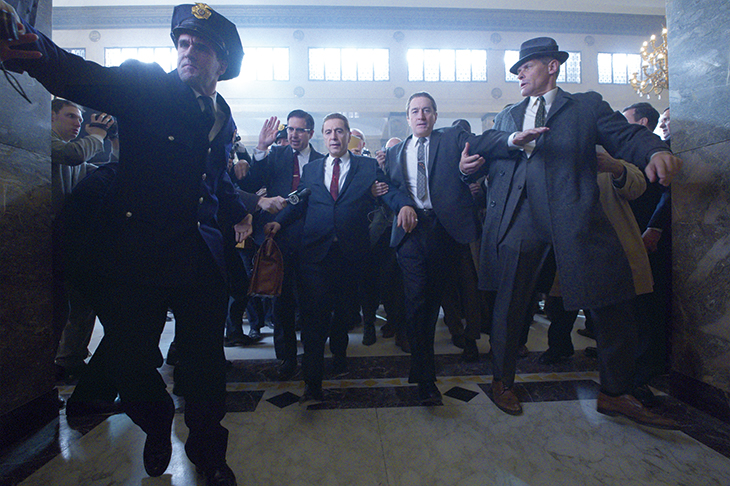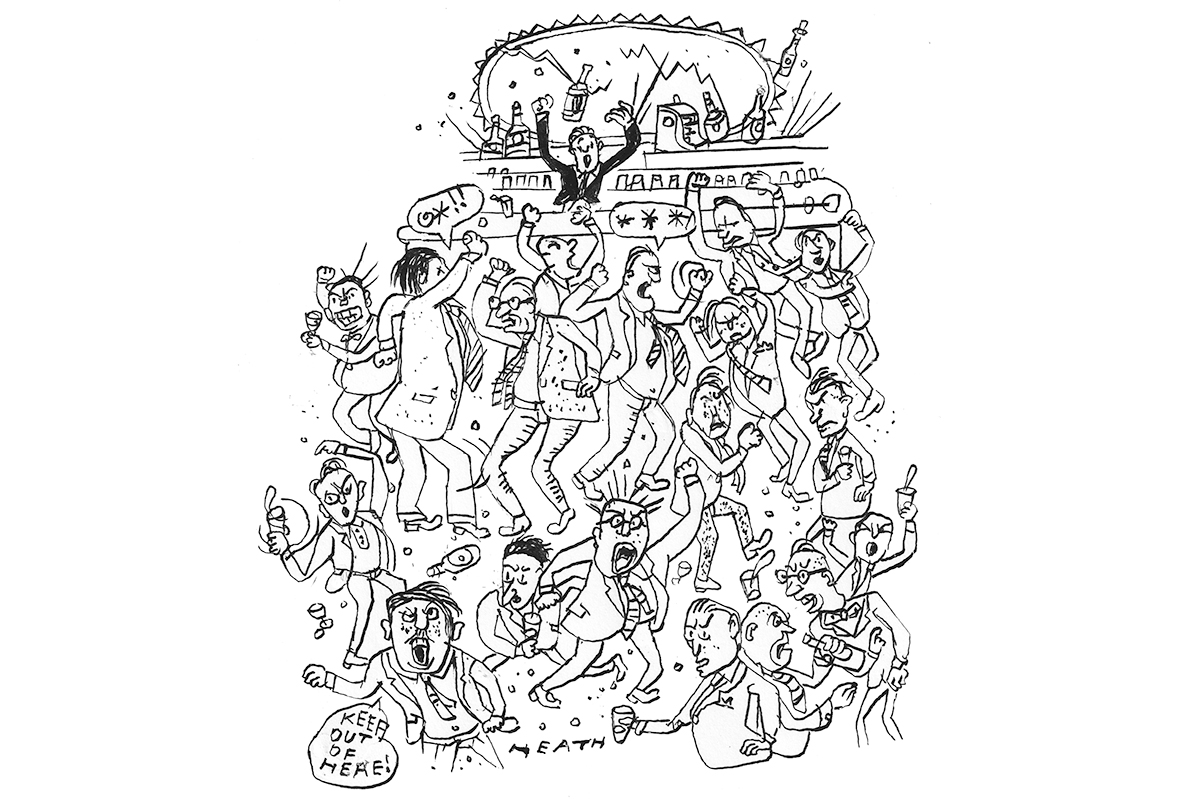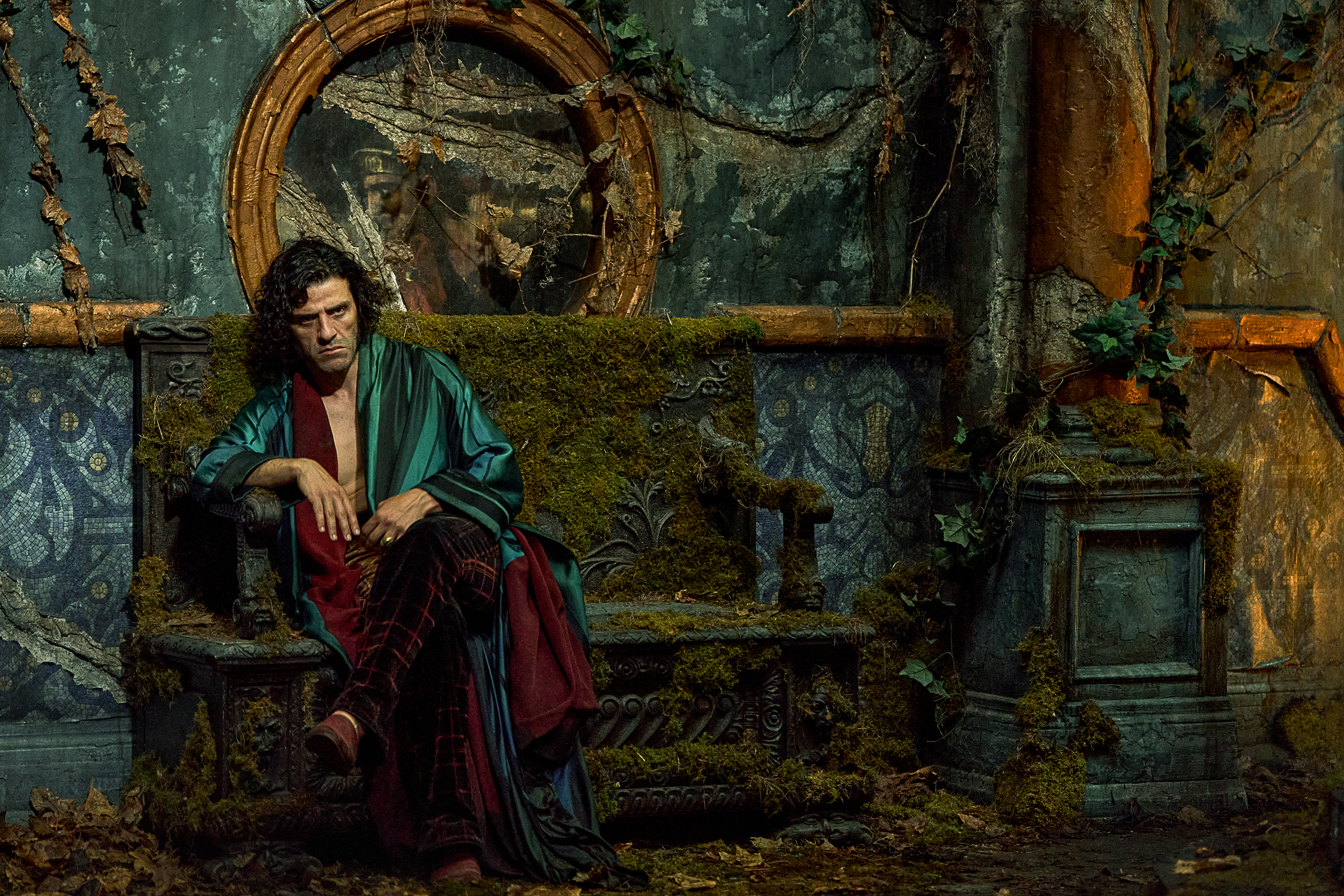The Irishman
is Martin Scorsese’s three-and-a-half-hour epic — a mobster-a-thon, you could say — starring Robert De Niro, Al Pacino, Joe Pesci and a light sprinkling of Harvey Keitel (he’s only in a couple of scenes). It’s based on the true, late-life confession of Mafia hitman Frank ‘The Irishman’ Sheeran and, while gangster flicks can often leave me cold and sometimes baffled — he was dispatched to sleep with the fishes for why? — this is magnificently engrossing. I wasn’t bored for a single minute which, given there are 210 of them, has to be a triumph, surely.
Financed by Netflix to the tune of $160 million, this is hitting cinemas briefly — it wouldn’t be eligible for the Oscars otherwise — before arriving at the channel on November 27. More bladder-friendly, watching at home, but I beseech you to see it on a big screen and, in preparation, you could always dehydrate from breakfast, as I did. (It’s the only way.) It is cinematic from the word go, opening with a single, sinuous tracking shot leading us down the corridor of a Catholic old folks’ home — with its religious paraphernalia everywhere, you are already thinking about sin and redemption — until the camera settles on Frank (De Niro), now in his eighties.
He starts telling his story, one that will take us back half a century, detailing how he became involved with the mob and how he became the right-hand man of Jimmy Hoffa (Pacino), the union leader who was in bed with organized crime and ‘disappeared’ in 1975. (The screenplay by Steven Zaillian is based on I Heard You Paint Houses, the Charles Brandt book in which Sheeran confessed to more than 25 murders.) Elsewhere, Pesci plays Russell Bufalino, a mob boss, while Keitel plays Angelo Bruno, the boss of bosses, and Anna Paquin stars as Peggy, Frank’s estranged daughter. She is the main female character but barely gets a line. Normally, I would be all over that, and damning this macho bullshit, but even though she is near silent she is employed brilliantly as the moral voice of the piece. One look from her and we are reminded just how terrible all these people are. (There’s a terrific scene in a bowling alley.)
The narrative has a Zelig-like quality as it takes in the Bay of Pigs and Watergate and the Kennedys, but all that is by the by. This is essentially an elegiac study of a man whose life has been steeped in violence and is now looking back with what may be regret, which is a new one on him. Mostly, he’s been an emotional void, but something is beginning to stir, interestingly. (‘But how do you feel?’ a priest begs at one point.) De Niro has been digitally de-aged — hairline restored, skin smoothed — for the flashbacks which is plain weird, admittedly. We’ve seen De Niro in his prime and he did not look Madame Tussauds-y like this. But you get used to it. His performance is powerfully low-key and dialed-down — his best work for years, and I’m including Meet the Fockers — whereas Pacino is boisterous and shouty. Was Hoffa as boisterous and shouty as this? But there are quiet moments, which are often darkly funny, as when the two have to share a hotel bedroom, and are in their pajamas, and put you in mind of Morecambe and Wise.
This is not one of those furiously kinetic Scorsese films. Instead, it is leisurely and meandering and you sense that, as Frank looks back over his life, this is also Scorsese looking back over his career, so it is affecting in this way too. See it on the big screen if you can. It’s worth dehydrating yourself for.
This article was originally published in The Spectator’s UK magazine. Subscribe to the US edition here.


























